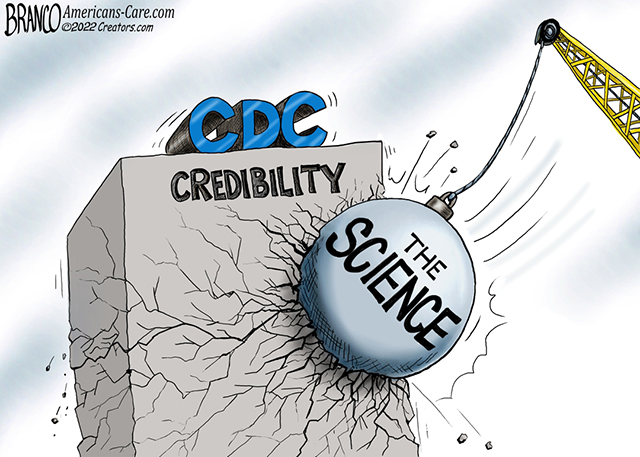Microplastics are EVERYWHERE: Yes, even in your gut and the food you eat, warn scientists
07/14/2020 / By Zoey Sky

Plastics are everywhere – in food packaging, everyday items you use and even in personal hygiene products. But according to the shocking results of a study, there are also plastics inside your body.
These findings, which were published in the Annals of Internal Medicine, showed that people ingest at least 50,000 microplastics annually.
Despite the various studies on the adverse effects of microplastics on the environment and animal life, experts have yet to determine how exactly exposure to microplastics affects humans. However, researchers have expressed their worries about how microplastics can accumulate toxic chemicals, which may then enter the bloodstream once you consume tainted food or beverages like bottled water.
Microplastics and gut health
According to the researchers from the Medical University of Vienna (MedUni Vienna) in Austria who conducted the study, you ingest microplastics when you eat certain kinds of foods and beverages.
Study findings also showed that it’s not just humans who unknowingly have microplastics in their bodies: Even aquatic animals are exposed to microplastics, which then enters your body when you consume fish and other kinds of seafood.
The researchers worked with participants from around the world. For the study, they examined stool samples taken from the volunteers. Results revealed that the samples contained nine different types of microplastics.
Philipp Schwabl, the study’s lead researcher from MedUni Vienna, explained that as the first study of its kind, it confirms something experts have already suspected: that microplastics inevitably end up in the human gut.

Pieces of plastic and PET
Upon examining data from the eight participants who came from Austria, Finland, Italy, Japan, the Netherlands, Poland and Russia, the researchers discovered that all of the fecal samples contained hundreds of pieces of plastic.
The volunteers kept a food diary in the week before the researchers took stool samples. The diaries revealed that they were all were exposed to plastics by consuming plastic-wrapped foods or consuming beverages in plastic bottles. None of the participants were vegetarians, with six of them reporting that they consumed fish.
The researchers tested the samples at the Environment Agency Austria for 10 types of plastics using a newly developed analytical procedure. The most common plastics found in the samples were polypropylene and polyethylene terephthalate (PET), which are often used in food and drink packaging.
The eight samples tested positive, with an average of 20 microplastics per 10 g of human stool.
The average adult excretes around 100g of stool daily. This translates to 200 bits of plastic. But within one year, this means you consume 50,000 microplastics.
The scientists also found seven other types of plastics in the stool samples, indicating that microplastics come from other sources aside from food and drinks.
Every year experts estimate that the average adult consumes 11,000, 5,800 and 1,000 microplastics from shellfish, tap water and salt, respectively. You also breathe in 70,000 microplastics from the dust in polluted air.
Schwabl cautioned that bottled water is one of the biggest sources of microplastics. You ingest an average of 118 to 325 microplastic particles per liter of bottled water that you drink, amounting to 90,000 microplastics per year if the intake comes from these sources. (Related: Why are tiny microplastics such a big deal? Understanding the harmful side effects of exposure, ingestion.)
Microparticles and immune health
Schwabl commented that microplastics may also damage the gastrointestinal tract by hindering “the tolerance and immune response of the gut by bioaccumulation or aiding transmission of toxic chemicals and pathogens.”
Earlier research on fish showed that marine life also had plastics in their gut. Additionally, microplastics were found in tap water around the world, in the oceans and even in flying insects.
In other animal studies, results showed that the highest plastic concentrations were found in the gut and that the tiniest microplastic particles can entering the bloodstream, lymphatic system and the liver.
Schwabl added that patients with gastrointestinal diseases are at high risk of experiencing adverse effects once they’re exposed to toxic chemicals via microplastics in their gut.
Schwabl concluded that continued research will help experts understand the adverse effects of microplastics on human health.
What are microplastics and how can you avoid them?
Microplastics come from broken-down plastic waste, synthetic fibers and beads in personal hygiene products like facial scrubs. Microplastics are less than 5mm in width and they are created unintentionally by the breaking down of larger pieces of plastic because of degradation and wear and tear.
While marine life mistake microplastics as food, humans are exposed to microplastics through various foods and beverages.
It seems like microplastics are everywhere, from the food you eat to products you use and even in clothing. Below are some tips that will reduce your exposure to potentially harmful microplastics.
- Use organic exfoliants and other cosmetic products that don’t contain microbeads.
- Avoid using single-use plastics that turn into microplastics. Drink coffee from reusable tumblers and stay hydrated by drinking from refillable water bottles.
- If you eat out frequently, always bring a set of reusable utensils and food containers for your leftovers.
- Don’t use plastic straws.
For more articles about studies on the dangers of microplastics and how to avoid them, visit Environ.news.
Sources include:
Submit a correction >>
Tagged Under:
Bottled Water, Ecology, environ, environment, food packaging, microparticles, microplastics, pet, plastic waste, plastics, polyethylene terephthalate, polypropylene, research, trash
This article may contain statements that reflect the opinion of the author


















